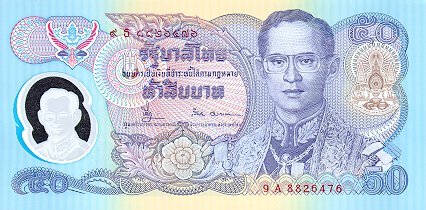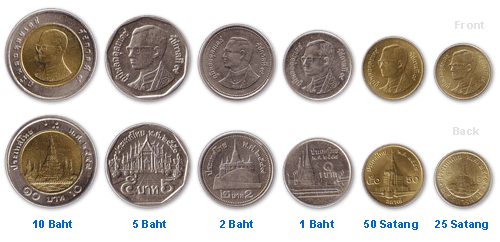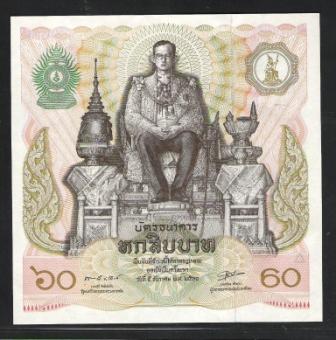|
Thailand has and does enforce the national lese majeste laws. These laws expressly prohibit any act - verbal, physical or written, that shows insolent or disrespectful behavior toward any member of the Royal family. In same time, all currency in Thailand, paper and coin, bears a portrait of His Majesty King Bhumibol Adulyadej or a deceased relative. With this in mind, DO NOT EVER: step on a coin to stop it from rolling away. DO NOT step on a Thai banknote to stop it from blowing away. DO NOT throw a note or coin in anger towards another person. DO NOT tear, burn or otherwise deface a note or coin.

These acts can easily been perceived as disrespectful toward his Majesty The King, or another member of the Royal family (and would be highly offensive to any Thai person that witnessed such an occurrence), and in keeping with lese majeste laws, you may be subject to unpleasant consequences.
The official currency of Thailand is the Thai Baht (pronounced – "bart" ). One baht is divided into 100 satangs.
Coins come in denominations of: 1, 2, 5 and 10 bahts, as well as in 1, 5, 10, 25 and 50 satangs;

Paper notes come in denominations of: 20, 50, 100, 500 and 1,000. The most commonly used coin is the 10 baht and the most commonly used note is the 100 baht.
There are still some old 10 baht notes in circulation, and you may even encounter a special "Commemorative issue" 60 baht notes. It is reported that the 50 baht note is being phased out of general circulation.

It is a 60 baht currency, which commemorated the 60th year of King Bhumibol Adulyadej of either his birthday or his 60th anniversary on the throne. This is an interesting large square note and obviously could not fit any wallet without it being folded in 4 at least.
|